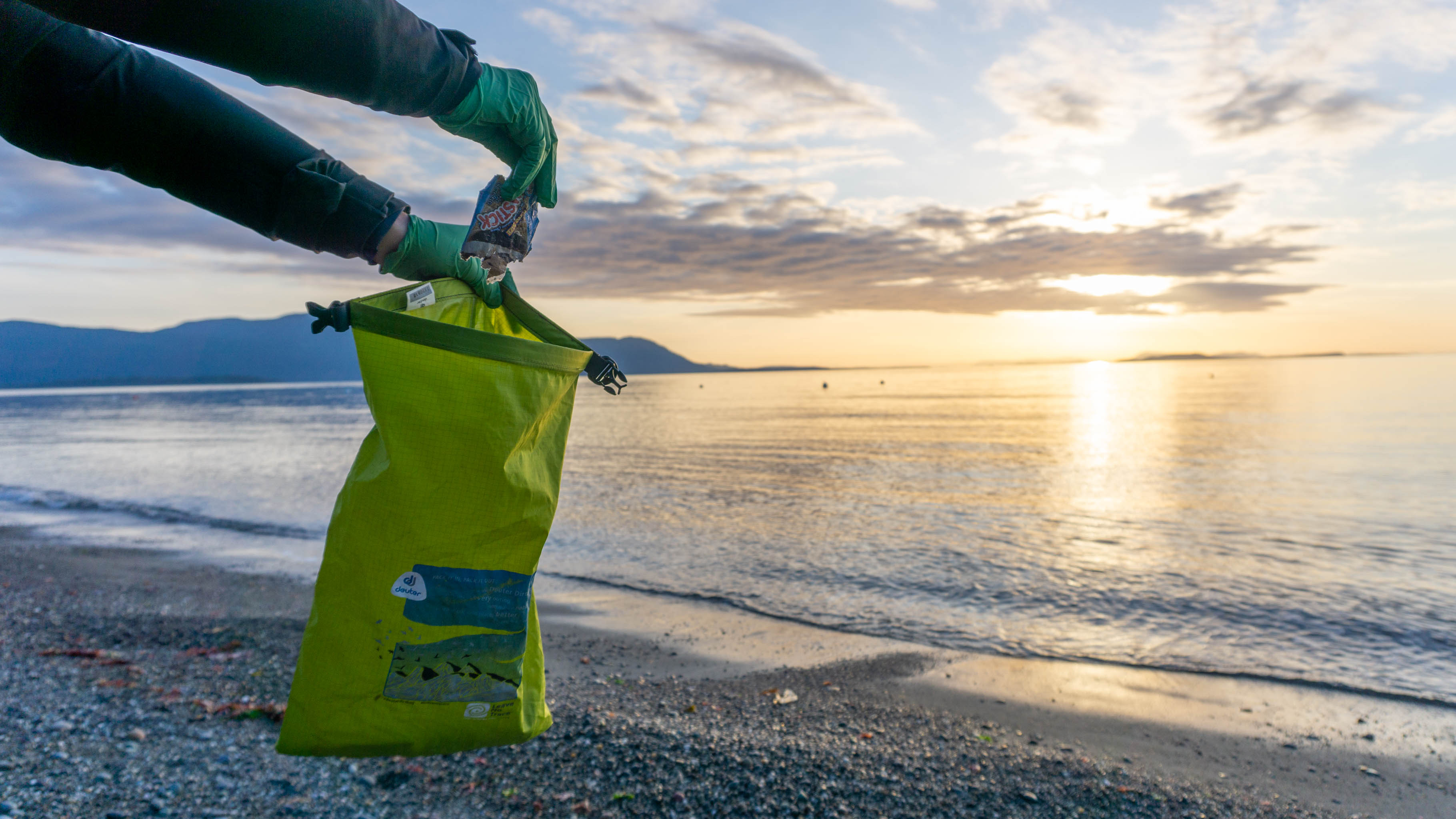Skills & Techniques
How to Reduce Stops by Packing The 10+ Essentials on Your Next Trip


Thinking about leaving the 2 mile radius around your home for an outdoor adventure? Learn these tips to minimize your impacts during longer trips by reducing your stops, and how to Plan Ahead and Prepare by packing the 10+ essentials.
The 10 Essentials
The 10 essentials are 10 systems to pack that will help you be prepared no matter the adventure, whether you’re going for a day hike, a weekend getaway, or an overnight campout. These items are intended to help you reduce your impacts on the natural world, while also keeping you safe in any sort of emergency:
Food
Pack enough food for your trip, plus a little extra. Repackage and prepare food ahead of time to minimize waste, and decrease the need to stop to restock along the way. A simple meal that we often prepare ahead of time to eat on the road is Quinoa Salad. Check out our Live on how to make Quinoa Salad and other fun camp recipes.
Water
Fill water ahead of time in a reusable jug. We travel with a 7 gallon water jug to reduce the amount of times we have to stop and fill up. If you are unable to bring water ahead of time, have a plan to obtain water, either by accessing potable water or by bringing a tool to filter it.
Emergency Shelter
A reflective space blanket is a great emergency shelter that is small and will fit in any pack.
Extra clothes/layers
A versatile outfit is like an onion, it has layers. Make a packing list before you go to make sure you have protection for all weather- rain or shine to avoid last minute stops to the store to buy a forgotten bathing suit or rain shell.
Multi-Tool or Knife
A pocket knife can come in handy in all sorts of situations, from something as simple as opening a friend’s beer, to repairing the brakes on your bike. Wrap a few feet of duct tape around your water bottle or trekking poles, and you can likely avoid any stops to the repair shop until you’re back home.
Navigation
Buy or print a physical map of the area you will be visiting before you go, and bring a compass. If you don’t have access to a physical map, you can use a phone to download a map in advance in case you don’t have service, as long as you have a way to keep your device charged while on your adventure. Since a phone can lose its charge and/or break, we suggest a physical map to reduce the chance that you’ll get lost and have to stop to ask someone for help, or worse- have to call someone to rescue which can put Park Rangers and Search and Rescue personnel at risk. Learn how to use a map and compass here.
Illumination
Have a flashlight or headlamp, and make sure to pack extra batteries to avoid last minute stops to the corner store.
First Aid Kit
Always carry a small first aid kit with some bandages for minor cuts and scrapes, along with antiseptic to avoid trips to the store. Here are some recommendations on how to build your own first aid kit.
Fire
Have an extra lighter or matches in case you need to start a fire and/or your camp stove. If you do buy firewood, we recommend buying it in the area that you’re going– that is one stop that is important to take if having a fire seems necessary.
Heat/Sun Protection
Bring your sunglasses if you wear them, and a hat to keep you cool.
The 10+ Essentials
Tools to Dispose of Waste Properly In Every Situation
The easiest way to minimize your impacts is to be prepared to dispose of your trash, grey water, and human waste properly.

Personal Protective Gear
Continue to follow CDC and WHO guidelines for yourself and others’ safety. Bring a cloth face covering and hand sanitizer with you on every adventure, and practice physical distancing.
We also encourage you to seek out resources such as @womenwhohike’s Anti-Racism Resources and Learning Tools and Leah Thomas’s (@greengirlleah)’s new platform that she created with a few friends, Intersectional Environmentalist, read books, google, and talk with your friends and family to learn how you can help dismantle anti-blackness and racism in the outdoors, from the backyard to the backcountry.
When you Plan Ahead and Prepare by packing the 10 essentials with you on your next weekend trip, you can actively reduce the amount of times you need to stop, leaving you prepared to Enjoy Your World and Leave No Trace.
By the Subaru/Leave No Trace Teams. For over 20 years these teams have provided tangible solutions to serious issues facing our outside space and reach over 15 million people every year. Learn more about the important work of our mobile education teams. Proud partners of this program include Subaru of America, REI, Eagles Nest Outfitters, Thule, Fjällräven and Klean Kanteen.
Let’s protect and enjoy our natural world together
Get the latest in Leave No Trace eNews in your inbox so you can stay informed and involved.
